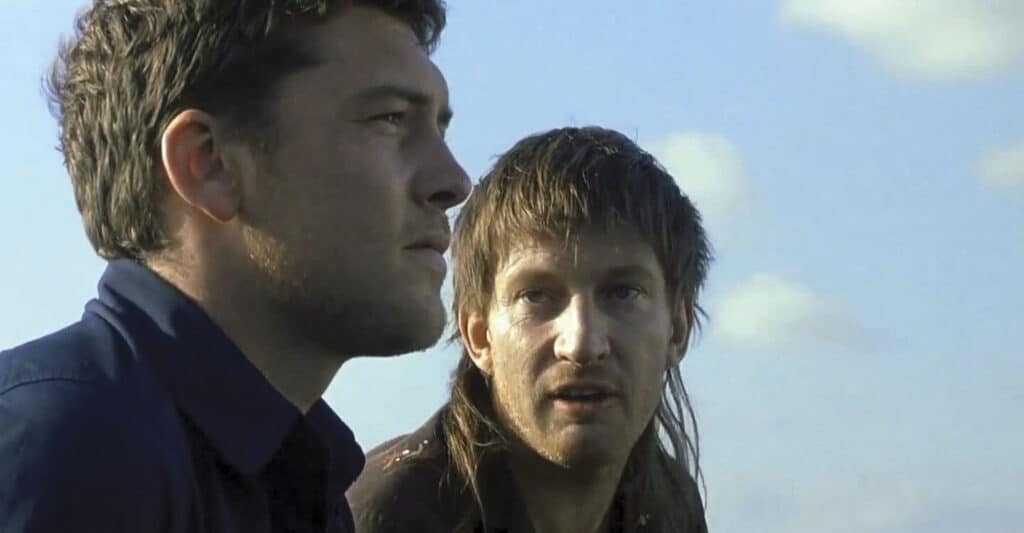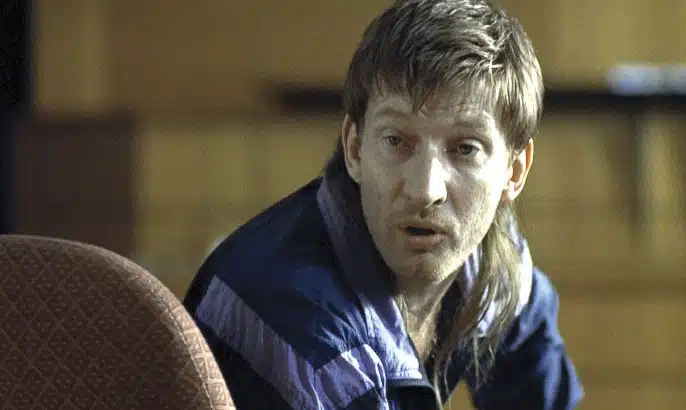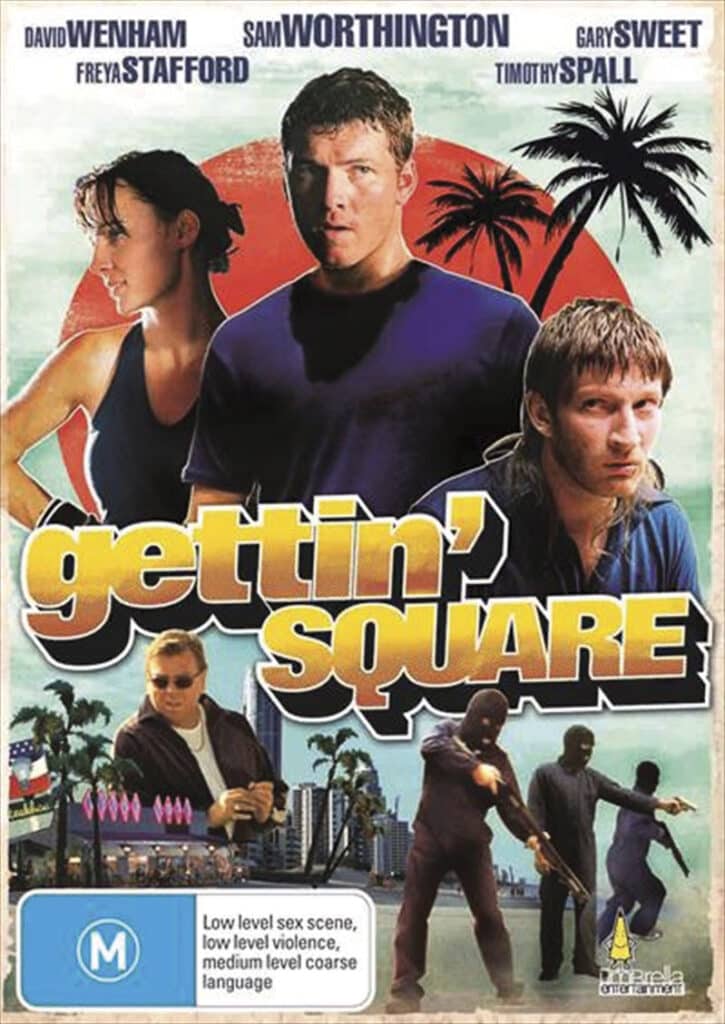CRIME
Time To Revisit ‘SPIT’ – Who would have thought a desperate, down-and-out junkie, with a very bad haircut, could possibly cause such a stir?

WORDS: Chris Nyst PHOTOGRAPHY Chris Nyst Portrait - Brian Usher - Lifestyle Image - Wesley Tingey @unsplash - Movie Still: Gettin' Square 2003
In the early 1980s, an epidemic of heroin use swept Australia. So, as a young Gold Coast lawyer taking whatever work came through the door, I spent a lot of time in courts appearing for hopeless, out-of-luck junkies caught up in the criminal justice system. It was a tough gig at times, but it also presented a fascinating window into the human condition.
Twenty years or so later, the world had changed exponentially. Those original junkies had mostly died off or moved on, a ‘heroin drought’ was gripping the country, and my practice had gone in a completely different direction.
Around that time, in the early 2000s, a prominent businessman sought my advice in relation to a particularly sticky issue he found himself facing. A high-powered, crime-fighting commission was investigating him on historical corruption allegations, and he had been subpoenaed to give evidence, behind closed doors, at a secret tribunal hearing, where he would be closely cross-examined under oath by a top QC, intent on discovering exactly what he did and did not know.
But that wasn’t what was worrying my client. He assured me he had nothing to hide, and would handle whatever might come his way, without so much as wrinkling his well-tailored suit. That wasn’t the problem. What was in fact concerning my self-assured client, I soon found out, was the fact that his younger brother – a mullet-coiffured, strung-out, ex-heroin-addict and small-time crim – had also been called to give evidence at the hearing. And who knew what on earth he was likely to say?
So I interviewed my client’s sibling and was assured he knew absolutely nothing of any of the alleged misbehaviour. Great. What could possibly go wrong? From a lawyer’s viewpoint, of course, the rules of such ‘star-chamber’ hearings were simply – listen to the questioner carefully, answer their questions succinctly, get in and get out. How hard could it be?
But there was something slightly unsettling about the glazed look in the witness’s eyes, his absent, distracted demeanour, and his casual thong-slapping saunter, that was clearly causing my client real concern that things just might not go quite as he’d planned. Soon, I understood why. As the learned QC carefully posed his first question, the witness was shifting in his seat and idly fidgeting with the microphone set up in front of him. He seemed clearly distracted, so much so that when the question was finally framed, the witness just peered back with a puzzled expression, and vaguely responded, “Huh?” To that the barrister promptly replied, “I beg your pardon,” thereby setting off a weird, disjointed, and thoroughly unproductive exchange that went roughly as follows –
“Why? What’d you do?”
“I’m sorry?”
“I don’t know why you’re sorry, mate. I don’t even know what you did.”
“I didn’t do anything, witness.”
“So what are you sorry for then?”
“I didn’t say I was sorry.”
“Yes you did. You said it just then.”
“No, I didn’t. I wasn’t saying I was sorry.”
“You were, you said it just then.”
“No, I didn’t.”
“Yes you did.”
And so on, and so forth, it went on from there, for an hour or more, as the whole conversation was gradually derailed and eventually diverted into a sorry state of utter confusion, with the often-indignant and always-disconnected parry and thrust doing nothing but add to the overall disarray. Eventually, the witness was openly complaining he had to get to the chemist to pick up his methadone medication, and demanding to know “Who’s paying for my bus fare?”
When the presiding commissioner had finally had quite enough of the chaos, dismissing the seemingly highly-offended ex-addict without further questioning, I was left to wonder whether my client’s brother was the dumbest person I had ever seen take the stand, or in fact the smartest.
In the days and weeks that followed, I got to reflecting on some of the desperate characters I had met in my time in the criminal courts, and how many of them had found a way of surviving, even in the most foreign and challenging circumstances. As I did, I began writing a series of comedic scenes featuring a resourceful, scheming heroin addict by the name of John Francis Spitieri, AKA “Spit.”
In 2002, Spit became the central character in the Australian feature film, Gettin’ Square, and the chaotic commission hearing became the film’s most famous scene. Gettin’ Square starred veteran British actor Timothy Spall, and launched the international career of Hollywood A-lister Sam Worthington. But the character whom audiences universally embraced was the hapless junkie, Johnny Spit, played brilliantly by the award-winning Australian actor, David Wenham. It was largely Wenham’s performance as Spit that garnered the film a record fourteen Australian Film Industry Award nominations in 2003, and in the same year got a standing ovation at Cannes. Wenham took out the Best Actor Award in every major award ceremony in Australia that year. Spit’s shambolic courtroom performance soon featured in video memes all around the globe, establishing the character as an iconic screen favourite, and elevating Gettin’ Square to the status of an Australian cult classic.
Now, in 2024, Wenham is set to reprise his award-winning role in a sequel, entitled simply Spit, filmed here on the Gold Coast. The actor says he’s delighted to re-visit the role. “Despite all the big budget international movies I’ve appeared in over the years since, and all the great characters I’ve played, without doubt, the role fans best remember and most love is Johnny Spit,” Wenham said recently. “There was just something about him that struck a deep chord with Australian audiences, and fans all over the world.”
Who would have thought a desperate, down-and-out junkie, with a very bad haircut, could possibly cause such a stir?












